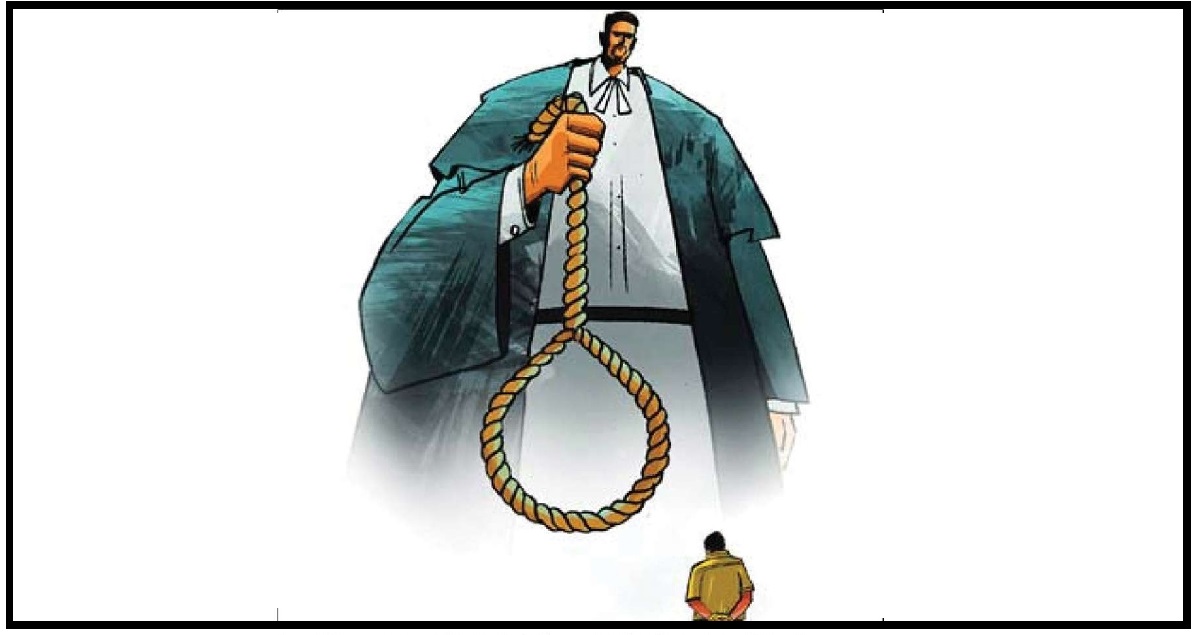
Mistaken Conviction -Contrary To Popular Opinion, Capital Punishment Will Not Help Deter Rape
The news of rape and the subsequent murder of a 13-year old child in Kanchanpur shocked and outraged the country to its core. It not only has highlighted how unsafe children and women are in Nepal but rightly brought the issue of sexual violence back on the national agenda. A recent report from the Nepal Police department reveals that between 2017-18, 1480 cases of rape were filed, excluding the 727 rape attempts. The appalling figures only reflect the growing violence against women where even minors have not been spared.
The unprecedented rise in such a heinous crime has led to demonstrations across the country and prompted demands for stricter rape laws. Some have even gone as far as demanding capital punishment for rapists believing that it sends out a strong message to the perpetrators, and as a result, such crimes can be deterred in the future.
One cannot deny that severe requital to the ones committing serious crime deters would-be criminals. But will the capital punishment work as a deterrent to the increasing rape cases? There is no evidence to suggest that threat of capital punishment has ever worked as a deterrence to crime. In fact even after the decision made by the Supreme Court of India to uphold the death sentences against the convicts of Nirbhaya gang rape and murder case in 2013; the number of reported case of rapes did not decrease. According to the National Crime Records Bureau of India (NCRB), in 2016, the incidents of rape of children had increased by over 82 percent compared to 2015. So to take capital punishment as a tool to take away all the bad people from the society is absurd because a person is not criminal inherently. There are many other social, economic and psychological factors that affect an individual's behavior.
A patriarchal mindset prevailing among many in the society regrettably holds the victim responsible for the rape. We live in a country where Nepali men are more privileged in terms of time and requirements to obtain naturalized citizenship for their foreign spouse as compared to Nepali women. This just holds the mirror to the deeply entrenched patriarchal mindset that sees a woman inferior to men. Even the education system of Nepal has not been able to include proper sex educations in schools because of various moral reasons.
More often than not, as a society we have at some point of our life have asked our daughters to get back home safe and early before We have squarely put the onus to be safe on girls, but failed to teach our sons about consent and to respect women. Espousing these values and changing society as a whole would be a colossal task. And the change will not happen overnight. So if one is to consider the root cause of rape, perhaps introducing the death penalty will, at best, serve only as a short-term solution.
Also, it would not be wrong to say that capital punishment is going divide the society between rich and poor. The victims of the punishment will be the weaker section of the society who cannot afford a proficient legal practitioner. According to the US Death Penalty Information Center, many factors other than the gravity of the crime or the culpability of the offender appear to affect death sentences, including geography, race, gender, and access to adequate counsel This geographic arbitrariness contributed to racial disproportionality in the use of the federal death penalty as well. A review of federal death row by Federal Habeas Corpus Resource Counsel of USA in February 2017 showed that more than 1/3 of federal death row came from Texas, Virginia, and the Eastern District of Missouri. More than 90 percent of the death-sentenced prisoners in those jurisdictions were defendants of color. The decision maker may consciously or unconsciously fail to adequately address between the worst kind of perpetrators and the sympathetic victims.
But having said that, it definitely does not imply that the perpetrator has no responsibility for his actions or state has no obligation to prevent the crime. The state, on its part, could focus on strengthening the law enforcement. For starters, laws have to be more victim-friendly and authorities could be more careful and sensitive when taking rape complaints. Also, the remarkable resolution proposed on 5th of July for the inclusion of issues against rape and gender-based violence in school textbooks has to be tabled in the House of Representatives at the earliest possible moment. Capital punishment is a regressive practice and an easy escape for the matter which requires constant preparation, engagement, and investment of resources by the government.
Author: PARBISHI MISHRA
(Mishra is an advocate.)
(This article also published on The Kathmandu Post)




